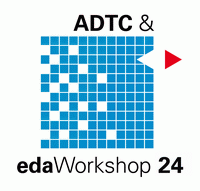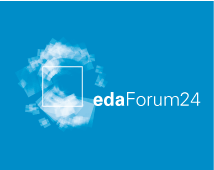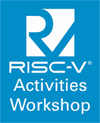Electronic Design Automation: Application Dependent or Cross-Sectional Design Technology?
Wolfgang Rosenstiel, Chairman , edacentrum
Abstract
Design is the key link between manufacturing technology and the world of applications. Innovation in design technology is of utmost importance for recent developments for CO2-reductions, safety improvements regarding automotive applications or the use of chip cards, just to name a few. Application specific as well as cross-sectional design solutions are required, with cost effectiveness and efficiency being substantial for the economic growth.
The ITRS-Roadmap shows substantial deficits regarding design in the application areas with utmost importance especially for Germany. The topics of highest priority will be discussed in this talk:
- Increase of the productivity especially regarding software-relevant embedded systems
- Design of energy-efficient systems covering communication systems, extremely low power analogue circuits and energy harvesting
- Design of robust and reliable systems for safety-relevant applications of automotive and industrial automation technology
- New formal methods for the synthesis and verification of complex mixed-signal-systems
edacentrum and its members and project partners analyzed in detail these deficits and will publish their recommendations for required research in the position paper “eDesign 2010-2014” at edaForum.
Curriculum Vitae
 Professor Wolfgang Rosenstiel received his Ph.D. in 1984 from Karlsruhe University. Since 1990 he is Professor (Chair for Computer Engineering) at the Wilhelm-Schickard-Institute for Informatics at the University of Tübingen, as well as Director of the FZI Department "System Design in Microelectronics". He is chairman of edacentrum, member of ITRS-Design-Committee, editor-in-chief of the journal „Design Automation for Embedded Systems“, and committee member of DFG senate for Collaborative Research Centers. Professor Rosenstiel received a Shared University Research Grant 2007 from IBM, DATE fellow award for his long term commitment in EDA and the support for the DATE conference in 2008, and an ERC advanced research grant in 2009. His research topics are hardware/software design and design tools for embedded systems, computer architecture, parallel computing and neural nets.
Professor Wolfgang Rosenstiel received his Ph.D. in 1984 from Karlsruhe University. Since 1990 he is Professor (Chair for Computer Engineering) at the Wilhelm-Schickard-Institute for Informatics at the University of Tübingen, as well as Director of the FZI Department "System Design in Microelectronics". He is chairman of edacentrum, member of ITRS-Design-Committee, editor-in-chief of the journal „Design Automation for Embedded Systems“, and committee member of DFG senate for Collaborative Research Centers. Professor Rosenstiel received a Shared University Research Grant 2007 from IBM, DATE fellow award for his long term commitment in EDA and the support for the DATE conference in 2008, and an ERC advanced research grant in 2009. His research topics are hardware/software design and design tools for embedded systems, computer architecture, parallel computing and neural nets.










